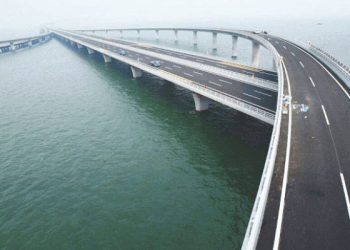It was a harvest of deaths and ruin in Anambra, Lagos and Ondo states recently, from sequential fuel tanker explosions that occurred within a week. In Onitsha, a fuel truck rammed into a busy motor park on May 31, claiming 50 lives, including a pregnant woman and children. This was followed by similar incidents at Iyana-Ipaja and Idimu in Lagos. Although no fatalities were recorded, scores of residential and business houses were reduced to rubble. These tragedies would have been avoided had sleaze-driven governance in Nigeria not messed up the petroleum market.
The Ipaja incident, coming two days later, involved a fuel-laden truck with 33,000 litres of fuel that fell off a bridge, destroying 44 shops, 21 vehicles, at about 1 am; while that of Idimu, 72 hours later, destroyed 34 houses and 70 shops. Within the same period, a similar accident occurred in Ondo State and killed 11 persons; just as there were also other tanker accidents in the Badagry and Ajah areas of Lagos.
For too long, tanker drivers and other articulated vehicles have constituted a terror on our roads without our safety agencies knowing what to do. Before the latest round of explosions, in 2012 in Igwuruta near Port Harcourt, 25 buildings were reduced to rubble and six persons roasted alive when a tanker crashed, while in Mile 2 in Lagos, a tanker explosion destroyed 32 commercial buses. Acting as if they are above the law, tanker drivers violate all traffic regulations: they park in unauthorised places; some ply the road with worn-out tyres; drive without licences; and frequent brake failures, evidence of poor vehicle maintenance, are common.
Yet, the Federal Road Safety Commission, Vehicle Inspection Office and the police exist as statutory agencies with the responsibility of enforcing traffic rules, determining the roadworthiness of all vehicles and maintenance of law and order. Sadly, these agencies are anything but efficient.
Jolted by these disasters, the FRSC boss, Boboye Oyeyemi, has held a series of meetings with the Petroleum Tanker Drivers union and Nigeria Union of Petroleum and Natural Gas Workers on how to reduce the frequency of tanker crashes. Governor Akinwunmi Ambode of Lagos State also held a similar meeting and set up a committee. After the first meeting, Oyeyemi’s insight into why these accidents occur is instructive: “Some of the things we realised with most of these crashes are that the vehicles were being driven by motor boys (conductors) and not the drivers.”
In fact, these post-disaster meetings with tanker drivers are knee-jerk reactions, which do not deal with the fundamental issue of why government agencies are incompetent in enforcing rules for public safety. Clearly, these drivers are not above the law. As those adamant to road safety, a review of how they obtain their driving licences has become absolutely necessary now. We doubt that they pass through rigorous training and tests before licences are issued to them. It is only within this context that one can explain these frequent tanker crashes and their notorious indifference to the safety of other road users. Again, fake driving licence syndication is still rampant in the country. A total war is needed on this front to avoid unqualified hands procuring forged commercial driving licences from such quarters.
Apparently, a fuel-laden tanker with an unlicensed driver behind the wheel is like a bomb-laden truck driven by a terrorist. The FRSC and related traffic agencies, therefore, should initiate periodic checks, insulated from graft, to fish out unqualified tanker drivers, and punish them in accordance with the law.
Besides, some swift proactive measures have to be taken. For instance, fuel haulage should not be allowed in the day time as stipulated in the Lagos State Traffic Law. This is a lesson inherent in the Ipaja explosion. The tanker that fell off the bridge at 1 am would have landed either on fully loaded passenger buses on the usually congested Lagos-Abeokuta Expressway, or on a crowd standing by, if the accident had occurred during the day. The Ambode committee on how to curb these disasters in Lagos should be conscious of this fact in its report.










































